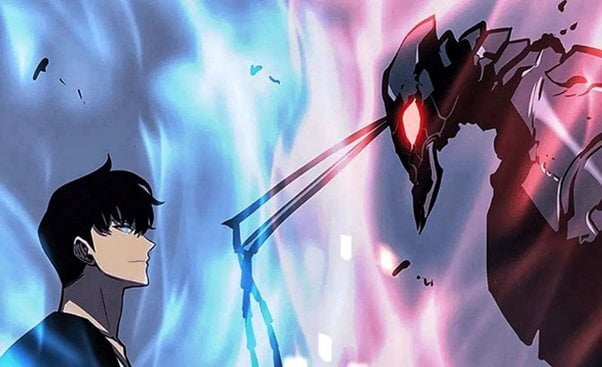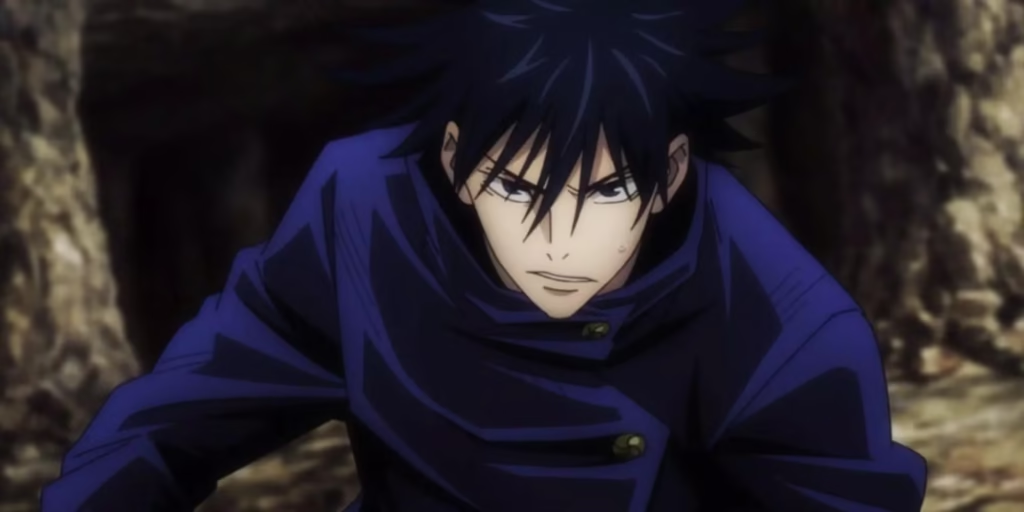
Megumi Fushiguro’s Origins: Gege Akutami Opens Up About the Character’s Meaningful Backstory
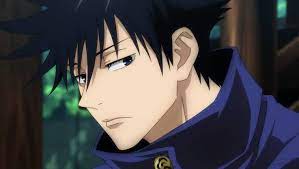
Jujutsu Kaisen is packed with explosive action, terrifying curses, and jaw-dropping animation—but beneath the spectacle lies something far more compelling: its characters. Among the cast, Megumi Fushiguro stands out for his quiet strength, emotional depth, and the calm intensity that radiates from his every move. He’s not loud like Yuji, flamboyant like Gojo, or chaotic like Sukuna, yet Megumi’s presence leaves a lasting impression.
But Megumi wasn’t just written to be the “cool, stoic one.” In recent interviews and fanbooks, Jujutsu Kaisen creator Gege Akutami revealed the thoughtful, sometimes personal inspiration behind Megumi’s character. As it turns out, Megumi’s creation and evolution are rooted in more than just archetypes—they reflect Gege’s thematic vision, storytelling goals, and even some commentary on morality and human nature.
In this blog, we’ll explore:
The inspiration behind Megumi’s character design and demeanor
Gege Akutami’s intentions when writing Megumi’s role
The contrast between Megumi and other characters
What makes Megumi emotionally resonant with fans
How his backstory and ideology connect to the core themes of Jujutsu Kaisen
“One Piece: 7 Reasons Luffy and Nami’s Bond Is the Heart of the Straw Hat Crew”
🌀 The Blueprint: What Inspired Megumi’s Creation?
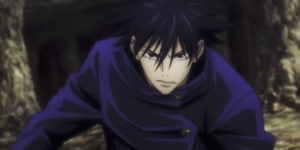
When Gege Akutami created Megumi, he didn’t just want a strong secondary lead—he wanted someone whose moral compass would challenge both the protagonist and the readers. While many shonen stories have a “cool rival” character, Megumi is different. He isn’t overly competitive, arrogant, or desperate to be the best. Instead, he’s introspective, logical, and deeply concerned with doing the right thing, even if he doesn’t always know what that is.
Gege has mentioned in interviews that he enjoys writing characters who are a bit twisted or morally gray. Megumi fits that mold well. His calm demeanor hides a lot of internal conflict, especially when it comes to deciding who deserves saving and why.
In an interview from the Jujutsu Kaisen Official Fanbook, Gege said:
“Megumi is someone who pretends to be a good person. He wants to do the right thing, but he’s also selfish. He chooses who he saves based on his own values.”
This is a huge departure from the typical heroic standard in shonen anime, where the protagonist often tries to save everyone without discrimination. Megumi challenges that norm.
🧠 The Morality of Megumi: A Flawed Yet Honest Ideology
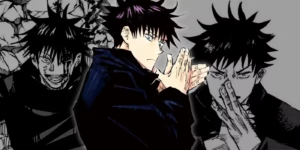
One of the most fascinating things about Megumi is his personal sense of justice. Unlike Yuji Itadori, who believes every life has value and is worth saving, Megumi believes in selective salvation. He doesn’t say it out loud very often, but his actions show it clearly—he is willing to let people die if he thinks it serves a greater good or if he deems their lives “less deserving.”
This ideology was inspired by Gege Akutami’s interest in moral ambiguity. Instead of creating a clear-cut hero, he gave Megumi a philosophy that could easily be questioned or criticized. Yet, it also makes Megumi extremely human.
It’s jarring. It’s cold. But it’s also deeply honest. In a world overrun by curses and danger, Megumi doesn’t have the luxury of idealism. He wants to protect others, but he also chooses his battles carefully. This complexity makes him both relatable and infuriating—exactly what Gege wanted.
🌙 Shadows and Silence: Megumi’s Powers as a Reflection of His Personality

Megumi’s Ten Shadows Technique isn’t just cool—it’s symbolic.
Gege has always said that he likes pairing powers with personality. Megumi’s ability to summon shadow-based shikigami fits his quiet, brooding demeanor perfectly. Unlike Gojo’s explosive flash or Yuji’s brutal fists, Megumi fights in the shadows—literally and emotionally. He strategizes, retreats, and adapts. He doesn’t rely on brute strength; he uses intelligence and subtlety.
Interestingly, Gege originally considered giving Megumi even more extravagant abilities, but decided to scale them to match his nature. He didn’t want Megumi to be flashy—he wanted him to be effective, calculating, and layered.
This synergy between ability and personality adds depth to the fights. When Megumi battles, he’s not just throwing out cool jutsu—he’s showing us who he is.
🧒 A Tragic Foundation: Megumi’s Family History
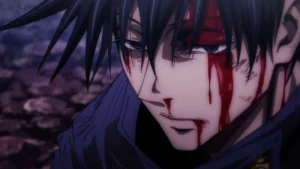
One of the most poignant parts of Megumi’s character is his backstory. Born into the Zen’in clan, Megumi was essentially sold by his father, Toji Fushiguro, for money. Toji abandoned his son, leaving him to be raised by strangers until Gojo stepped in.
This abandonment, followed by Gojo’s mentorship, created an inner tug-of-war in Megumi’s psyche. He inherited the Zen’in name and technique but rejected their values. He grew up resenting both his family and his father—yet his powers tie him directly to that legacy.
Gege Akutami has said that he loves writing about broken families and the cycle of trauma. With Megumi, he created someone who wants to be better than the people who hurt him, but who can’t quite escape their shadow.
This unresolved tension between inheritance and autonomy gives Megumi’s story a tragic edge. He’s not just fighting curses—he’s fighting to not become the people who shaped him.
☯️ Megumi vs. Yuji: Duality in Motion

It’s impossible to fully appreciate Megumi without comparing him to Yuji Itadori. While Yuji is empathetic, passionate, and self-sacrificing, Megumi is stoic, pragmatic, and conflicted. They often disagree, but their friendship works because they balance each other.
Gege has mentioned that Yuji and Megumi were designed to mirror and challenge one another. Yuji represents emotional intuition; Megumi represents rational judgment. When Yuji wants to save someone no matter the cost, Megumi is the one who weighs the consequences. When Megumi hesitates, Yuji pushes him forward.
Their dynamic is what keeps both characters grounded. It’s also a clever narrative device—Gege uses them to present two sides of the same moral question: What does it mean to do the right thing in a cursed world?
😔 A Hero With Limits
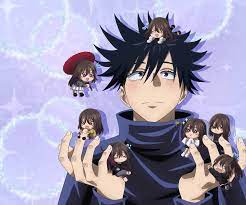
One of the reasons fans deeply connect with Megumi is because he fails—and he knows it. He’s aware of his shortcomings, whether it’s underestimating his enemies, hesitating at key moments, or struggling to control his power.
In fact, Gege once said that Megumi was written to grow slowly over the course of the series. Unlike characters who undergo dramatic transformations in a single arc, Megumi is evolving bit by bit. He’s learning from failure, adapting, and becoming stronger—not just physically, but mentally.
This slow burn development makes his character arc feel realistic and emotionally rewarding. Fans don’t just watch Megumi grow—they grow with him.
🔥 Fan Reception: Why Megumi Resonates
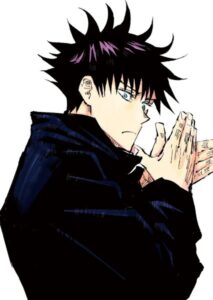
Megumi has quickly become a fan-favorite character, and it’s easy to see why. He’s not perfect, not loud, not flashy—but he’s real. His struggles with morality, identity, and loyalty resonate with fans who crave more than just surface-level heroes.
Fan artists, theorists, and cosplayers gravitate toward him because he’s multi-layered. Whether it’s his relationship with Toji, his friendship with Yuji, or his complex ideology, there’s always something new to unpack.
Gege Akutami seems to enjoy teasing the audience with hints about Megumi’s future. Fans speculate about everything from his potential Domain Expansion evolution to whether he’ll play a pivotal role in the final confrontation with Sukuna.
🧩 Final Thoughts: Gege’s Quiet Masterpiece
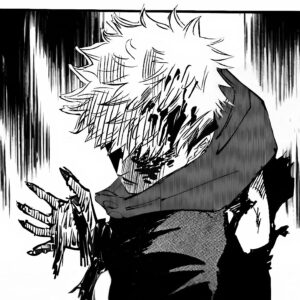
Megumi Fushiguro may not scream for the spotlight, but he owns it in his own way. Through his layered personality, strategic powers, and emotionally rich backstory, he exemplifies what makes Jujutsu Kaisen so much more than just a battle anime.
Gege Akutami’s decision to give him a flawed, sometimes selfish worldview was deliberate. It challenges the reader. It makes us ask: Would I do the same? Would I save everyone… or just the people I choose?
In Megumi, Gege crafted a character who represents moral tension in its purest form. And in doing so, he gave us one of the most nuanced, heartbreaking, and unforgettable characters in modern anime.
DPVNATION


